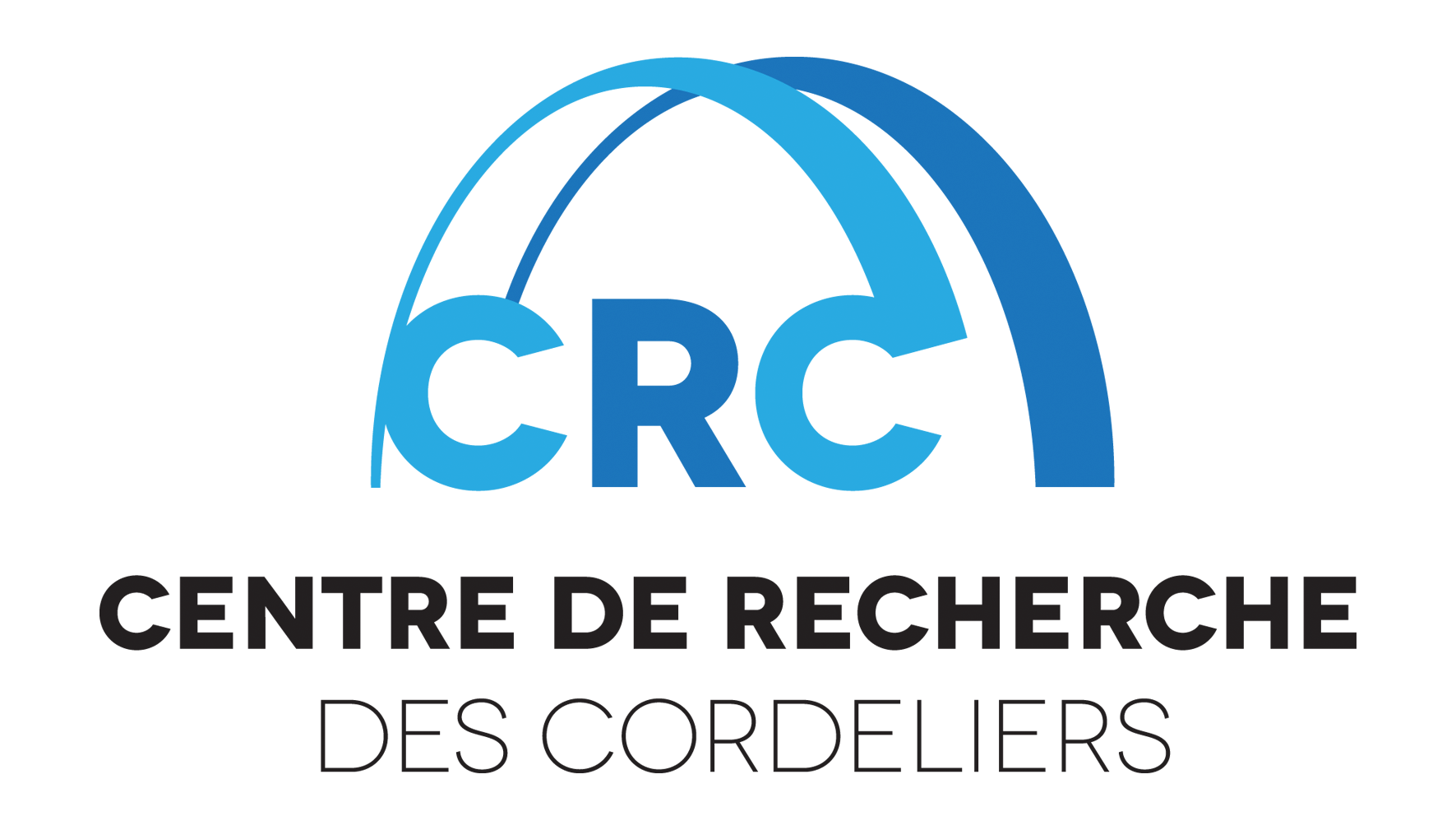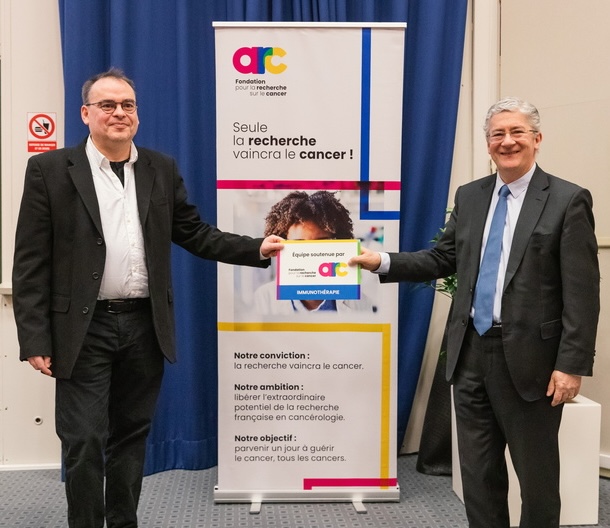24/03/2025
As part of its SIGN’IT program, which supports research on patients’ response to immunotherapies, the ARC Foundation, in collaboration with the Cordeliers Research Center, recently organized an exclusive meeting between Didier Jean and the donors of the SIGN’IT program.
This crucial exchange highlighted the concrete impact of donor engagement in shaping the future of research and provided a deeper understanding of the stakes of this project for the future of immunotherapy and the management of pleural cancer.
The Support of the SIGN’IT Program by the ARC Foundation
Although pleural cancer remains associated with a poor prognosis, some hope has emerged since 2021 with the introduction of dual immunotherapy. However, this new therapeutic approach does not benefit all patients and is sometimes poorly tolerated. The current scientific challenge is to better predict which patients will respond favorably to these treatments. This is precisely the objective of the project coordinated by Didier Jean, a researcher at the CRC, selected in 2024 for the SIGN’IT – Immunotherapy Signatures – program of the ARC Foundation.
This pioneering program in Europe annually supports projects aimed at identifying “predictive signatures” to better guide the use of immunotherapies in cancer patients. Didier Jean’s project benefits from three years of funding, amounting to €600,000.
What Therapies for Pleural Mesothelioma?
A specialist in pleural mesothelioma, or pleural cancer, Didier Jean leads the “Mesothelioma” group within the “Functional Genomics of Solid Tumors” team, directed by Professor Jessica Zucman-Rossi. The project he coordinates aims to identify biomarkers capable of predicting the response of mesothelioma patients to dual immunotherapy.
This rare cancer, primarily caused by asbestos exposure, remains challenging to treat. Due to its generally late diagnosis, aggressiveness, and late onset (ages 60-70), it carries a poor prognosis.

The recent introduction of dual immunotherapy, combining anti-PD1 (ipilimumab) and anti-CTLA4 (nivolumab) to target immune checkpoint inhibitors, has opened a promising avenue. A survival benefit has been observed compared to chemotherapy, but results vary among patients.
Predicting Patients Who Will Benefit from Immunotherapy
A better understanding of the biological mechanisms underlying immunotherapy could improve patient management and enable more personalized medicine.
To achieve this goal, Didier Jean and his collaborators 1 will analyze tumors from 150 patients 2 with pleural mesothelioma who have undergone dual immunotherapy. Their research will focus on several key areas :
Molecular Characteristics :
Using next-generation sequencing techniques, transcriptomic analysis of these tumors will help determine differential messenger RNA expression, identifying predictive signatures specific to responders and non-responders.
Additionally, epitranscriptomic analysis will highlight potential ribosomal anomalies that may affect protein synthesis, as similar alterations have been discovered in other cancers.
Study of the Tumor Microenvironment :

To characterize all cellular populations within the tumor, the team will use single-cell RNA sequencing technology to study messenger RNA expression at the individual cell level.
Furthermore, by leveraging innovative spatial-omics tools, the combined study of transcriptomics and proteomics on tumor sections will enable precise localization of different cellular populations within the tumor microenvironment.
Ultimately, researchers will select seven promising biomarkers, whose relevance will be validated through additional multiplex immunohistochemistry analyses on tumor sections.
In the long term, this project could help identify a predictive signature for immunotherapy response, paving the way for more targeted and potentially more effective treatments for mesothelioma patients. In parallel, researchers hope to gain new fundamental insights into the biology of this rare cancer, improving our understanding of its mechanisms and exploring new therapeutic avenues.
A Meeting to Discover the Stakes of This Research Project
As part of the SIGN’IT program, ARC Foundation donors were invited to an exclusive meeting at the Cordeliers Research Center to better understand the progress and prospects of the project led by Didier Jean and his team.
They had the pleasure of meeting and listening to Jessica Zucman-Rossi, director of the center, and Didier Jean, who presented the project’s objectives. The donors also had the opportunity to visit the research laboratories, where they directly interacted with team members and discovered various experiments conducted within the framework of this project.
This immersive experience into the research process vividly illustrated the tangible impact of their commitment on future discoveries.
- The project coordinated by Didier Jean brings together a multidisciplinary team of renowned experts in thoracic cancers and their management:
Dr. Jean-Baptiste Assié, pulmonologist (Cordeliers Research Center / CHIC, Créteil)
Prof. Sylvie Lantuejoul, anatomic-cytopathologist (Centre Léon Bérard, Lyon) and head of the national MESOBANK tumor bank
Prof. Diane Damotte, anatomic-cytopathologist (Cordeliers Research Center / Cochin Hospital – APHP, Paris)
Prof. Arnaud Scherpereel, pulmonologist (CHU Lille) and head of the NETMESO network
Prof. Laurent Greillier, pulmonologist (Hôpital Nord, APHM, Marseille), for the French Pneumo-Oncology Group (GFPC) ↩︎ - The patients included in this study are part of “real-life cohorts” established by the French Pneumo-Oncology Group (GFPC).
Tumor samples were collected by the national MESOBANK tumor bank, which is part of the national NETMESO network for the management of pleural mesothelioma.collectés par la tumorothèque nationale MESOBANK qui fait partie du réseau national NETMESO de prise en charge du mésothéliome pleural. ↩︎











